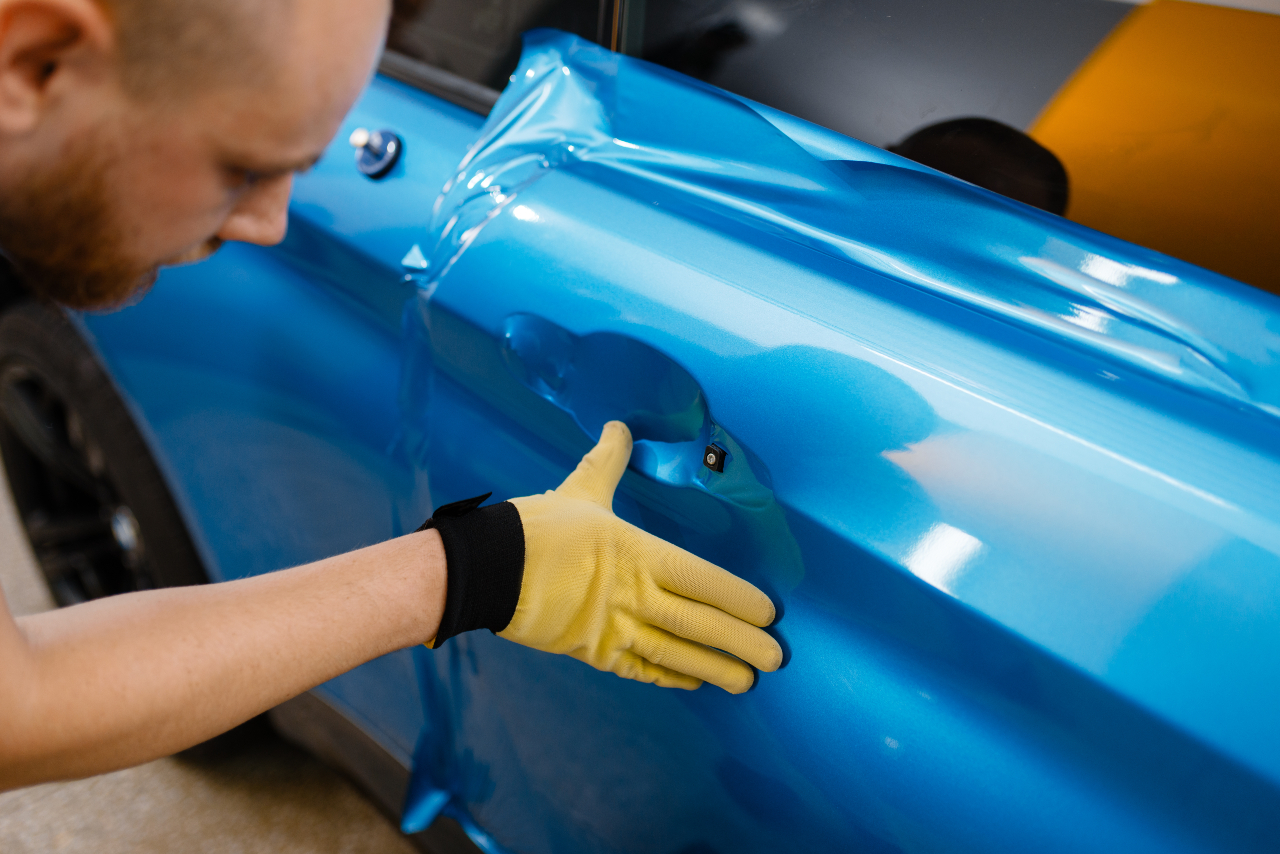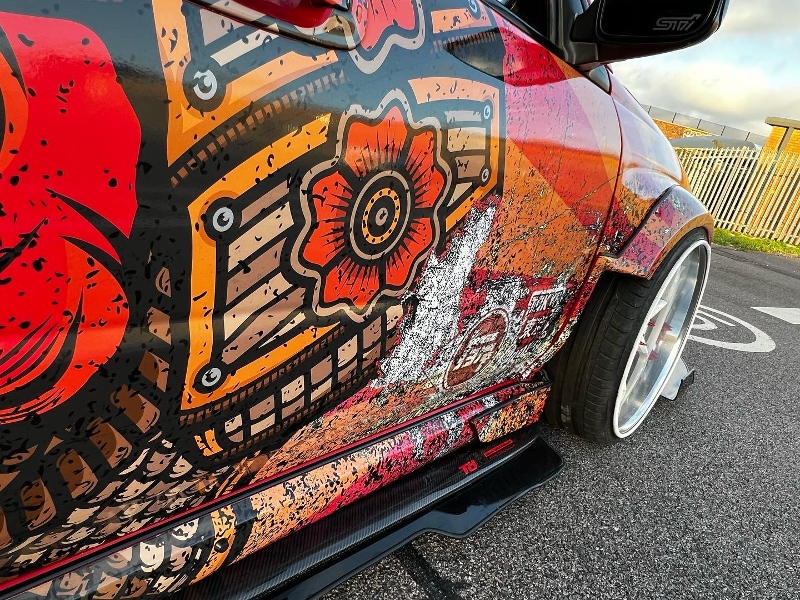The Benefits of a Vehicle Wrap Compared to a Respray
Thousands of businesses personalise their fleets, adding logos and contact details to truck wraps, signage to vans and marketing information to company cars. This advertising medium is an excellent way to improve brand awareness and showcase your business to a local audience. The challenge comes when it’s time to update your vehicles with different colours, a new service, or a change in phone number.
If you have previously had the vehicle sprayed, you might assume that a respray is the only option, stripping back the old paintwork and applying a new surface layer. However, this process can take several days and be very expensive.
Vinyl wrap may be an advantageous alternative as a fast, cost-effective, and efficient vehicle branding service that takes a fraction of the time, with exceptional finishes, colours, and bespoke designs.
What is a Vehicle Wrap?
Wraps are made from slimline, supple vinyl, pre-printed with your custom designs, and tailored to the specific vehicle. For example, you might wish to add company colours to the side of a van wrap with contact information on the rear doors and a bold logo on the bonnet.
While wrapping is used extensively for supercars and in racing, it is also a cheap, easy method of upgrading the appearance of commercial vehicles, suited to anything from a full-size HGV to a smaller passenger car.
One of the core features is that a professionally printed and fitted wrap looks identical to paintwork. The level of detail, colour and texture is outstanding, and only a vehicle wrapping expert or bodywork technician could differentiate between these two finishes!
You can review galleries of vinyl wrap projects online to get a better idea about the breadth of choice available and how commercial enterprises and small businesses customise their vehicles with commercial vehicle wrapping to stand out from the crowd.
How Long Does a Vehicle Respray Take?
Respraying can take a fairly long time because it isn’t possible to spray over existing bodywork without any preparatory work. In most cases, the technician will need to strip the paint back to the metalwork and smooth over rust, dents, filler, and any damage.
Next, the vehicle is stripped down, removing mirrors, handles, lights, and trims, covering over any edging with tape to ensure the paint can’t reach anywhere it shouldn’t.
The vehicle will usually need filler applied to any small dents, which need to be sanded and shaped to provide an even surface, with a primer applied first to ensure the paint adheres correctly to the filler.
Once all those tasks are complete, the paint is applied and buffed with a textured cloth to stop dust from settling into the paintwork, with a final polish.
Respray costs vary considerably, depending on whether you’re respraying individual panels or the entire vehicle and whether you’d like to apply specific colours, logos, or design details. Most bodywork professionals will recommend a vinyl wrap for anything more complex, such as a business logo, since the time and cost of creating bespoke templates can be high.
A full respray of one passenger car, without repair work, can cost from £3,000 and upward, making it unviable for businesses that need their fleet back on the road in minimal time and where customised paintwork for larger vehicles would cost significantly more.
Advantages of a Vinyl Wrap vs a Vehicle Respray
Of course, the cost is front and centre for businesses, and any upgrades or updates to a fleet need to be cost-effective and fit within a finite budget. The primary benefit of a vinyl wrap is that it costs considerably less than a respray.
The vinyl is designed digitally, with the graphics transferred to your chosen brand of vinyl, before being applied with precision detail by qualified technicians, ensuring the wrap doesn’t have any bubbles or inconsistencies.
More detailed designs are better suited to vinyl wraps, as an intricate paint project requires several days of additional work. This point leads nicely to the next advantage, which is time – and we all appreciate that time does indeed cost money!
As a rough indication:
- Wrapping a standard-sized van takes around two days.
- Respraying a small car can take about one week.
- Larger or more complex resprays can take up to two or three weeks.
It may be cost-effective to have all your vehicles wrapped in one go. Although that might mean a few days at most being off the road, the vinyl is ready to go immediately – it won’t need to remain parked up until the paint and any protective finish is 100% cured.
Extending the Lifespan of a Commercial Fleet with Vinyl Wraps
Vinyl wraps sit as a layer above your paintwork; this allows a technician to install the wrap quickly after any remedial work is completed. The vinyl protects the paint from damage, which is inevitable for fleets that travel thousands of miles a year, and experience chips and scratches from grit and gravel on the road.
The positive for business owners is that this can help extend the usable life of their vehicles and avoid needing to replace a wrap sooner than necessary. The underlying paint remains pristine, preserving the resale value if they sell the vehicle later.
Commercial-grade vinyl wraps applied by specialist wrapping teams, like WrapUK.com, are long-lasting and durable. They won’t peel away or fade and can last for years with little maintenance or a ceramic coating shielding the vinyl from damage.
Customising a Business Vehicle Vinyl Wrap
Vehicle wraps are entirely customised, and if you change your business details or need to update your wraps, they can be removed and replaced.
Replacing paintwork is costly and may not be viable for older fleet vehicles that will only be in service for another two or three years, whereas you can remove a vinyl wrap at any time.
There are no lasting impacts to the original bodywork, and vinyl is completely removable, ensuring you can restore the vehicle to its original appearance before selling without the markdown associated with a branded vehicle that will need to be repainted.


